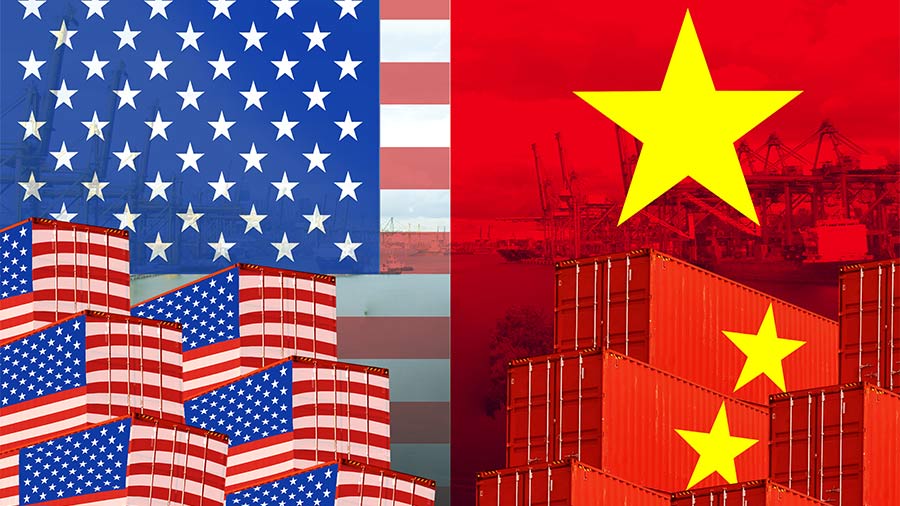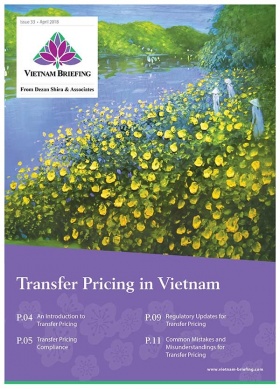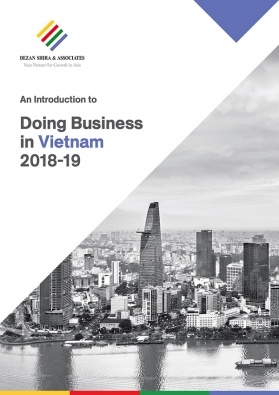Vietnam’s M&A Market: Opportunities for Foreign Investors
2017 emerged as one of the strongest years for Vietnam. With the GDP growing at 6.81 percent and a record high FDI, Vietnam will continue to be a priority for investors in 2018. In 2017, the total M&A deal value reached a record high of US$ 10.2 billion. In the first half of 2018, M&A value reached US$ 3.55 billion, growing by 55 percent from the same period last year. By the year-end, the M&A market is forecast to reach US$ 6.5 to US$ 6.9 billion.
M&A Deals
ThaiBev’s acquisition of a 54 percent stake in Vietnam’s largest brewer, the Saigon Beer Alcohol and Beverage Corporation (Sabeco), was the largest deal in 2017, estimated at US$ 4.89 billion. In addition, there were other large ticket deals as well in 2017.
- Singapore’s Jardine Cycle & Carriage Limited Company completed the purchase of an additional 12.8 million shares, about 0.9 percent of Vietnam Dairy Products JSC (Vinamilk). The purchase takes their aggregate stake to 8.9 percent in Vinamilk. The total capital spent in the acquisition was over US$ 1 billion;
- South Korea’s CJ Group, acquired two businesses under Vietnam’s biggest logistics firm Gemadept. The group acquired a 50.9 percent stake in Gemadept Logistics Holding and Gemadept Shipping Holding, totaling $85 million; and
- Vietnam’s tech firm FPT Corporation sold 47 percent of its subsidiary, FPT Trading to Taiwan’s Synnex Technology International Corporation. In addition, it also sold a 30 percent stake in FPT Digital Retail to funds managed by and associated with Dragon Capital and VinaCapital.
Major Sectors
Real estate has emerged as one of the most attractive sectors for foreign investors. With the government prioritizing infrastructure development; residential, offices, retail, hotel, and industrial parks have seen increased investments from Japan, Korea, Singapore, and China as well. Foreign investors in the real estate sector prefer joint ventures rather than acquisitions, as local players have land assets and are well connected with local authorities, while foreign investors have the much-needed capital and technical expertise.
Apart from real estate, other sectors such as retail, consumer goods, and industrial goods have also seen an increase in M&A activities. Irrespective of the industry, investors usually focus on the leading companies as they have a dominating market share and strong brand value.
M&A Regulations
In Vietnam, there is no single law that governs M&A activities and investors should take note of the different laws and decrees that govern such issues. The laws and regulations include:
- The 2014 Investment Law and Law on Enterprises – These laws set out the general legal framework and investment rules and procedures. Enforcing authorities include the local People’s Committee, Ministry of Planning and Investment (MPI), and Ministry of Industry and Trade (MoIT);
- 2006 Securities Law – This Law regulates the acquisition of shares in a public company in Vietnam. Enforcing authorities include the State Securities Commission (SSC), Vietnam Securities Depository Centre, and MPI;
- 2005 Competition Law – The Vietnam Competition Authority (VCA) enforces this law;
- Other specific regulations exist for Vietnamese companies in highly regulated sectors such as banking, finance, insurance, and so on.
M&A Documentation
A letter of intent is the common preliminary agreement that is drafted, outlining the buyer and seller intentions in a transaction. It includes the main terms of a transaction and other details such as exclusivity and confidentiality. In addition, it also mentions the predicted timeline for completing the transaction process.
After a letter of intent is drafted, there are several other documents required depending on the type of transaction. In the case of a share purchase, a share purchase agreement or share subscription agreement is required. A shareholder’s agreement could be needed if less than 100 percent of shares are purchased. Depending on the type of transactions, corporate approvals or disclosure letters may also be required. In most cases, the buyer prepares the first draft of all the documents.
An acquisition agreement covers the type of transaction (shares/assets) as well as the transaction mechanism. Other clauses include buying price, payment methods, warranties and indemnities, cancellation procedures, conditions precedent, and governing laws and jurisdiction.
According to the Law on E-transactions, digital signatures are binding in nature and are enforceable in Vietnam, subject to conditions.
Investor opportunities in 2018
The government has lined up a number of divestments of State-owned enterprises (SoE) in 2018. This provides an opportunity for foreign investors looking to acquire brands that are well known locally and have a majority market share.
- Petrolimex – The country’s biggest petroleum distributor will divest a 24.9 percent stake in 2018, valued at VND18.67 trillion (US$ 848.63 million). This will reduce state holdings in the firm from 78.6 percent to 53.7 percent;
- Airports Corporation of Vietnam (ACV) – The operator of 22 airports in Vietnam, is planning to sell a 20 percent stake in 2018 and 10.4 percent in 2019;
- Vietnam National Textile and Garment Group (Vinatex) – The textile company will divest the entire 53.48 percent stake held by the state in 2018;
- VNSteel – Vietnam’s government will divest a 57.92 percent stake in 2018 and another 36 percent in 2020;
- Vietnam Engine and Agricultural Machinery Corporation (VEAM) – The state planned to divest 52.47 percent of its share in the agricultural machinery manufacturer in 2017, but the sale could not go through. Hence, the government will push for the sale in 2018. VEAM holds a 30 percent stake in Honda Vietnam, 20 percent in Toyota Vietnam, and 25 percent in Ford Vietnam;
- Construction Corporation No.1 (CC1) – The construction firm along with the Ministry of Construction (MoC) is planning to divest the entire 40.5 percent stake held by the state in 2018;
- Lilama – The fabrication and installation contractor, currently under MoC, plans to divest 46.88 percent in 2018 and another 51 percent in 2019. As a general contractor, the company is involved in numerous thermo-power, oil refinery, and cement projects;
- Viglacera – The construction materials company will sell a 20.62 percent stake in 2018 and the remaining 36 percent held by the state in 2019;
- Vinapharm – The State-owned pharmaceutical firm could divest 65 percent of its stakes in 2018;
- Hanel – The electronics, IT, and telecommunications firm will sell 29 percent in 2018;
- In addition, divestments are also planned in Hanoi Beer Alcohol and Beverage Joint Stock Corporation (Habeco), Binh Minh Plastics, Tien Phong Plastics, FPT, and Hancorp.
Investor concerns
Although the M&A market was quite active in 2017, investors have held back due to an underdeveloped legal and institutional framework. Issues such as unfair valuations, unable to acquire a controlling stake, and lack of information on public companies have slowed down the divestments of state-owned enterprises.
In addition, the lengthy regulatory approval process for M&A investments has led to delays in the transfer of ownership, leading to higher costs for investors.
Looking ahead
The M&A trend will likely continue in 2018, as the government aims for a higher number of divestments, especially in the energy, infrastructure, and telecom sectors. The government is trying to streamline the administrative procedures, increase transparency, and reduce regulatory burdens for investors, which can lead to an increase in M&A transactions for both, the public and private sectors.
Note: This article was originally published in March 2018.
About Us
Vietnam Briefing is produced by Dezan Shira & Associates. The firm assists foreign investors throughout Asia from offices across the world, including in Hanoi, Ho Chi Minh City, and Da Nang. Readers may write to vietnam@dezshira.com for more support on doing business in Vietnam.
We also maintain offices or have alliance partners assisting foreign investors in Indonesia, India, Singapore, The Philippines, Malaysia, Thailand, Italy, Germany, and the United States, in addition to practices in Bangladesh and Russia.
- Previous Article Guerre Commerciale USA-Chine : Délocaliser au Vietnam pour en Mitiger les Effets
- Next Article Vietnam: Growing Demand for Healthcare Services































